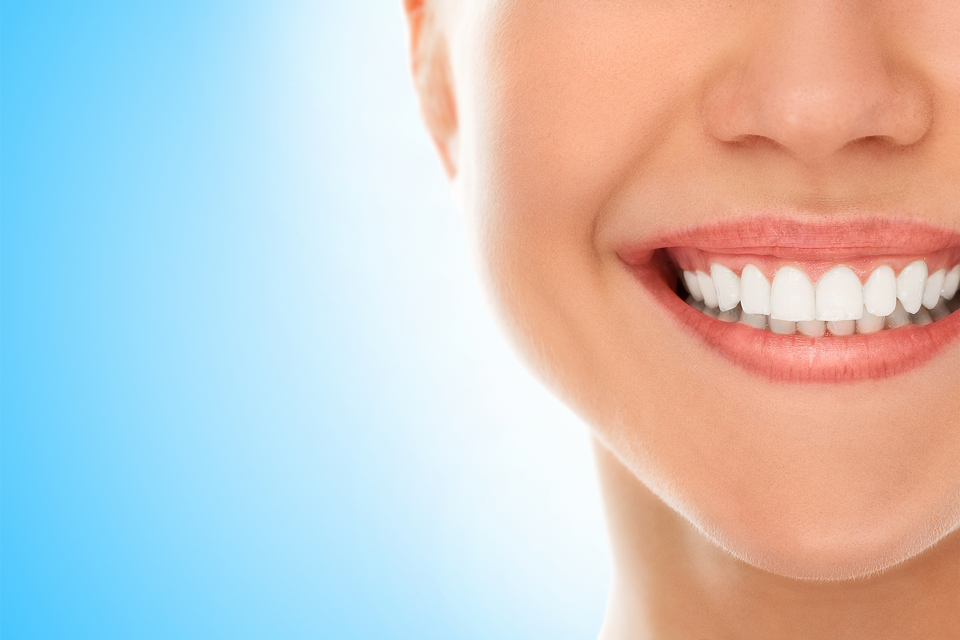Gum disease is an inflammation of the gum line that can also affect the bone that surrounds and supports your teeth if left untreated. There are three stages of the disease — gingivitis, periodontitis and advanced periodontitis.

As well as regular check-ups, you must brush and floss at least twice a day, reducing the build-up of plaque, which is usually the cause of gum disease. Rinsing your mouth with a mouthwash that’s used to treat gingivitis can be helpful, and try to avoid sugary foods and drinks.
Without regular check-ups, you probably won’t know that you have a problem until it’s in the more advanced stages.
Gum disease can be painless, so it is important to keep an eye on the following symptoms:
Anyone at any age can be affected, especially if you have not been making oral hygiene a priority. However, it is most common in people over the age of 30. There are some groups in the population who are at increased risk, including diabetics, pregnant women, anyone with a poor diet and those taking illicit drugs.
If left untreated, gum disease can become a severe problem. Once it is past the earliest stages, professional treatment from a dentist or hygienist is the only way to cure gum disease. If you notice any of these symptoms, the sooner you seek treatment, the better your chances are of saving your teeth and health. Please schedule an appointment to receive professional gum disease treatment from our dentist.
Gum disease is most commonly caused by plaque, a sticky film of bacteria that forms on the teeth. If plaque is not removed through daily brushing and flossing, it will harden into tartar. Tartar can only be removed with a professional cleaning from your dentist. There are some other reasons for gum diseases that include:
To avoid gum diseases, you must practice good oral hygiene and visit your dentist regularly for check-ups and cleanings. Brushing your teeth two times a day with a toothbrush with soft bristles and flossing daily can help prevent the build-up of plaque and tartar.
Medications help us fight diseases and illnesses, but some medications can have adverse side effects that contribute to gum disease. For example, some drugs cause dry mouth, which reduces saliva production and increases the risk of gingivitis.
Antidepressants, Blood pressure medications, Decongestants, and Pain relievers are just a few examples of medications that can contribute to gum disease. In addition, some medications reduce the body’s ability to fight off bacteria, which increases the risk of infection and inflammation in the gums.
If you are taking any of these medications, it is essential to discuss this potential side effect with your doctor or dentist so that they can work with you to prevent gum disease. Also, maintain a good oral hygiene routine and check your dentist regularly. With proper care and monitoring, you can enjoy healthy gums for life.
The best way to treat gum disease in Keysborough depends on the severity of the condition. A combination of professional dental cleaning and improved oral hygiene habits is recommended. Professional cleanings involve specialised tools to remove plaque and tartar build-up around your teeth and gums.
Your dentist may also provide you with special toothpaste or mouth rinses to help you keep your teeth and gums healthy. In more advanced cases, additional treatments such as scaling and root planing may be necessary. Scaling is a procedure that involves the removal of plaque and tartar build-up from underneath the gum line. At the same time, root planing smoothes out the roots of your teeth to prevent bacteria from attaching themselves.
Surgery may be needed for severe gum disease cases to help restore your gums’ health. Whatever the treatment, it is essential to follow through with recommended oral hygiene practices and regular dental visits to maintain healthy gums effectively.
Good oral hygiene is essential for preventing gum infections and periodontal disease. Practising a daily routine of brushing, flossing, and rinsing with an antibacterial mouthwash can help reduce the bacteria that cause gum infections.
Additionally, regular visits to the dentist for professional cleanings are essential for removing plaque build-up and calculus from areas of the mouth that cannot be reached adequately by brushing and flossing.
A water flosser can also help thoroughly clean hard-to-reach places between the teeth and the gum line. In more severe cases of gum infection or periodontal disease, a dentist may prescribe antibiotics or recommend periodontal surgery to restore health to the gums.
Following treatment, it is essential to maintain good oral hygiene habits and regular dental visits to prevent gum infections from recurring. Additionally, avoiding risk factors such as smoking, chewing tobacco, or consuming sugary drinks can help reduce the chances of developing gum disease over time.
By following these simple steps, individuals can successfully prevent gum infections and periodontal disease and keep their gums healthy.
Please enter the information below, and select “Subscribe” to add your email address to receive Parkmore Family Dental newsletter. Please add parkmorefamilydental@gmail.com to your safe e-mail list so you don’t miss out on our latest news.